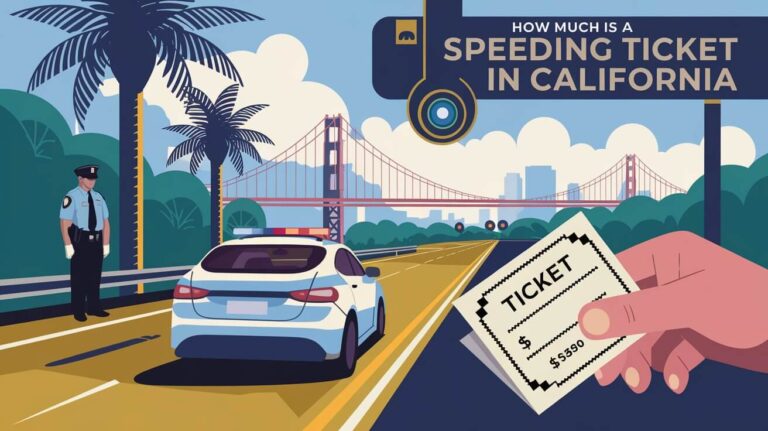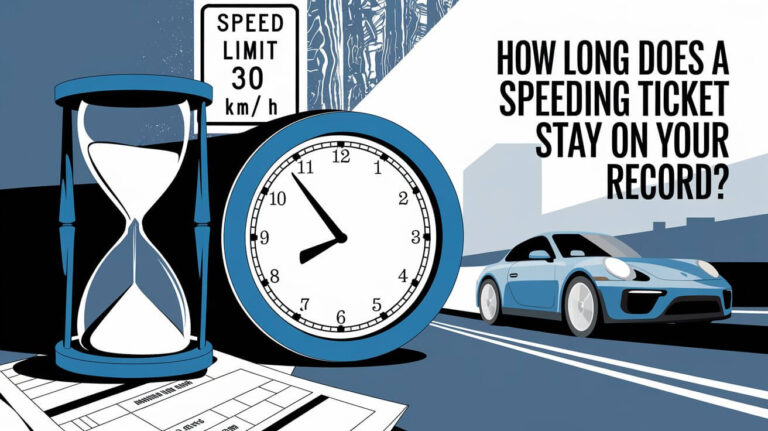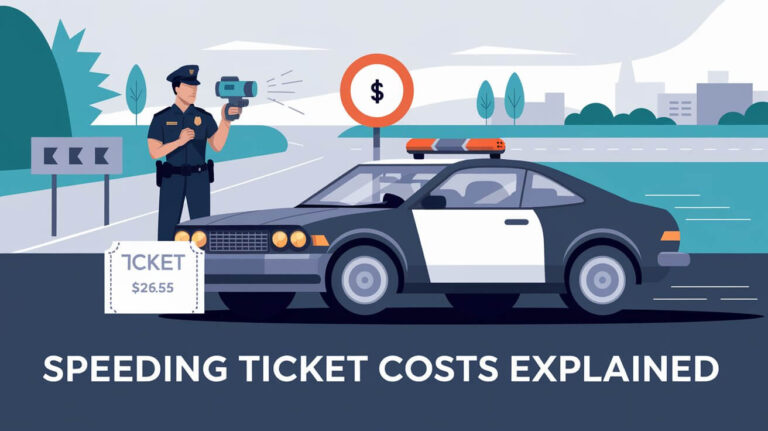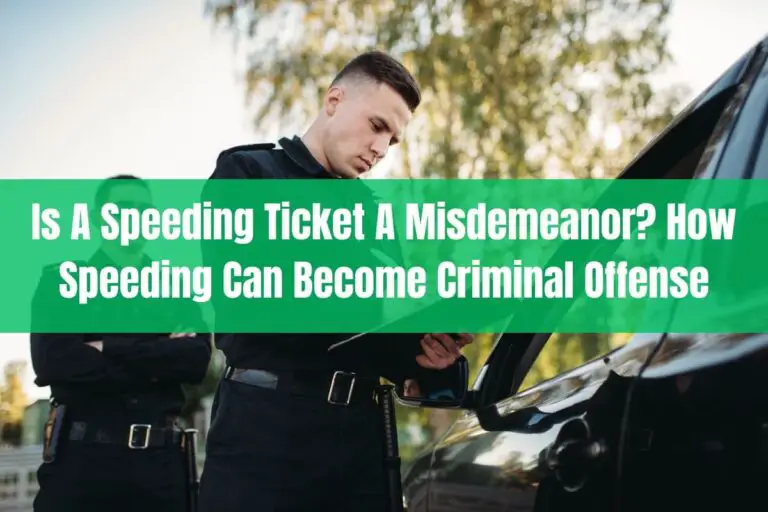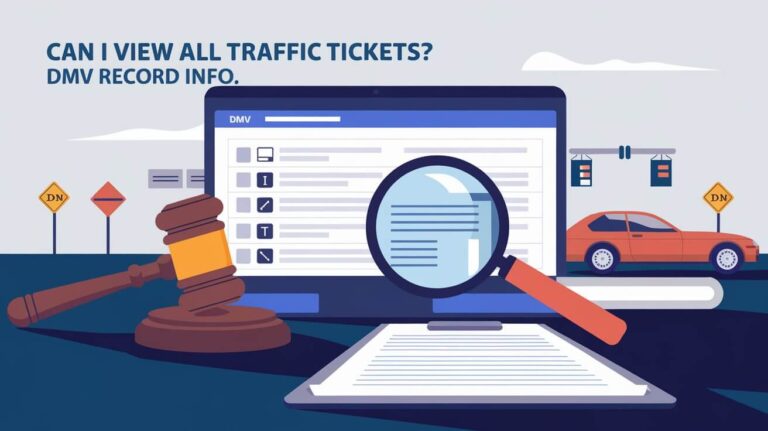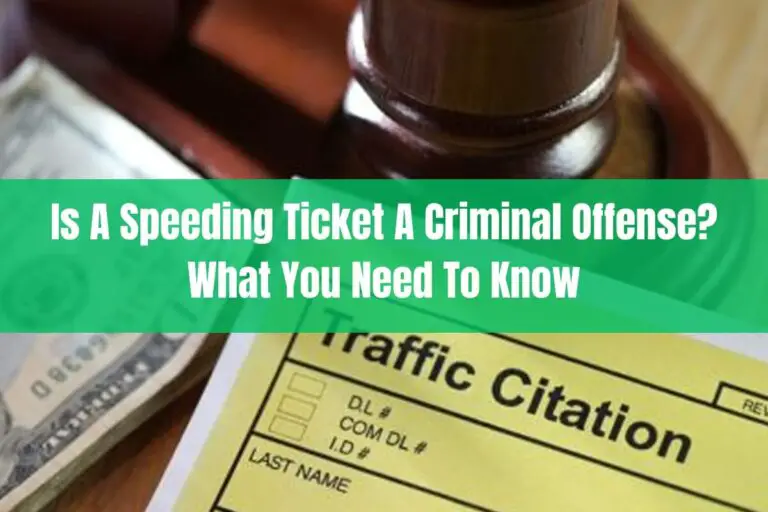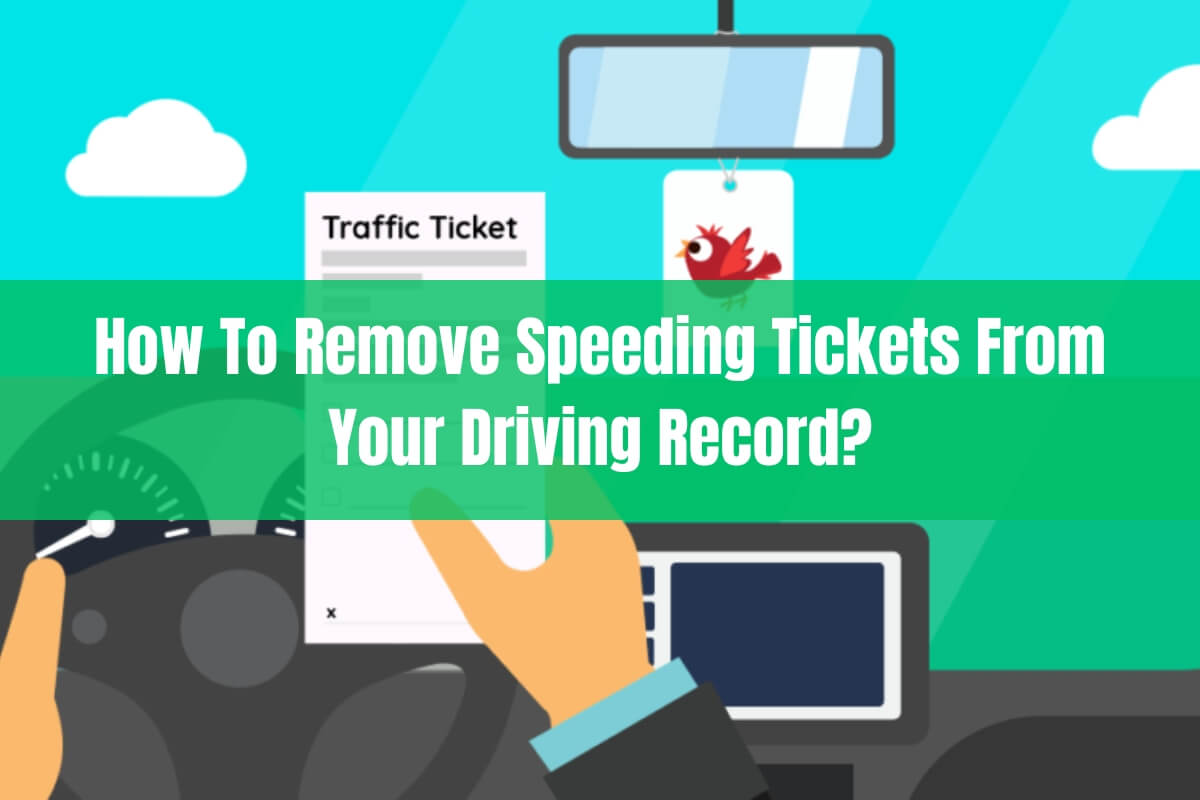
Have you recently received a speeding ticket and want to know how to keep it from negatively impacting your driving record? Getting points on your license or increased insurance rates from a ticket can be frustrating, but there are steps you can take to remove and prevent issues with your record. This guide will outline everything you need to know.
Why You Should Remove Speeding Tickets From Your Record?
When you get a speeding ticket, it gets added to your permanent driving record. This record is then used by insurance companies to determine how risky of a driver you are and set your rates accordingly. Just a single ticket can increase your premiums by an average of 23%!
Speeding tickets also add points to your license depending on the severity of the offense. Get enough points within a certain time frame and you may have your license suspended. You could also run into issues when renewing your license.
Luckily, there are ways to remove and prevent tickets from negatively impacting your driving record if you act quickly after receiving the citation. Keep reading to learn how.
What Gets Added to Your Driving Record?
Your driving record includes all reportable violations and accidents from every state you have a license in. Reportable offenses typically include:
- Speeding tickets
- Running red lights/stop signs
- Reckless driving citations
- DUIs
- At-fault accidents
- Driving without insurance
Insurance companies will review your driving record when setting rates to determine how risky of a driver you are. More violations = higher premiums.
How Insurance Companies Use Driving Records?
After a single ticket, expect your car insurance rates to increase by about 23% on average. But each company uses driving records differently when setting premiums:
- Some may ignore a first-time ticket completely
- Others boost rates immediately after any violation
- Most assess driving records yearly and increase premiums accordingly
Because there can be a lag between receiving a ticket and your insurer accessing your record, there is usually an opportunity to have the ticket removed before it impacts your rates.
How Points From Tickets Work?
States add points to your license for each ticket received, with the number depending on severity of violation. Common thresholds for license suspensions:
- 4-5+ points in 12 months
- 6-8+ points in 24 months
- 8-12+ points in 36 months
Like insurance hikes, points can take time to show up on your license. Acting fast gives you the best chance to stop them from accumulating.
Option 1: Contesting Your Speeding Ticket
Pleading “not guilty” and arguing your case in traffic court is the most direct way to beat a ticket. However, success rates tend to be low since the officer who wrote the citation will also be present.
Bringing a traffic lawyer increases odds slightly, but can get expensive. Contesting tickets should be reserved for clear-cut disputes or severe violations.
Succeeding on technicalities – Read ticket carefully for any errors in personal details, location, violation codes etc. Even minor technical issues can get them dismissed.
Option 2: Taking Defensive Driving Courses
Many states offer drivers the chance to attend traffic school/defensive driving to remove eligible tickets from their driving record.
Benefits:
- Ticket dismissed and no points added after completing course
- Typically can be used once every 12-18 months
Limitations:
- Generally not applicable for major violations like DUIs
- Availability and rules differ widely by state
Taking online courses provides convenience, and some insurers offer discounts for completing even if ticket itself doesn’t qualify to be removed. Check options with your state DMV.
Option 3: Getting a Deferral
Deferrals allow you to push back the impact of a ticket on your driving record by about 1 year if approved by court.
Getting a deferral involves:
- Pleading guilty
- Paying court fees ($100-$300 typical)
- Avoiding additional tickets during deferral period
If successful, the ticket will be dismissed and kept off your record permanently. However, any new tickets received in the deferred timeframe will also be added, likely doubling any fines and insurance rate hikes.
This gamble makes deferrals risky, but the reward of keeping your record clean can pay off.
Additional Ways To Remove Tickets From Your Driving Record
Contacting the clerk of court – Some jurisdictions empower clerks to reduce tickets to non-moving violations that avoid points and record issues. Fines/fees still apply.
Waiting for expiration – Tickets drop off records automatically after 3-10 years depending on offense type and state laws. No action needed but patience.
Record sealing – In some locales, you can petition courts to seal convictions after 1+ year. This hides violations from public databases but may not fully erase them.
Pardons – Rarely granted for traffic violations, but can be pursued in some states as last resort for unfair tickets. Highly difficult to obtain.
Tips To Prevent A Future Ticket From Impacting Your Record
While removing existing tickets can be challenging, taking proactive steps immediately after receiving a citation for a new offense provides the best chance at defending your driving record.
1. Contest quickly – Don’t delay traffic court dates to preserve options of getting ticket dismissed fully. Statute of limitations is short for traffic violations.
2. Seek traffic school – Plead with the court to allow you to take defensive driving early on to avoid points and conviction records.
3. Request deferral – Ask for ticket impact to be postponed before conviction entered to buy yourself time and avoid insurance spikes.
Move fast and persistently to keep the ticket off your permanent driving history!
Recap: Best Ways To Remove Speeding Tickets From Your Record
Here are the most effective options for removing speeding tickets from your driving record:
- Beat the ticket in traffic court (success rates low)
- Complete defensive driving course if eligible in your state
- Get court approval for a deferral to delay impact by 1 year
- Contact clerk of court right away to ask for reduction
- Wait for 3-10 years for tickets to expire from record
Acting quickly when cited gives you the most legal avenues for keeping your driving record clean. Prioritize traffic court dates, pursue traffic school immediately, and explore second chances offered in your area so insurance/license consequences can be avoided.
With proactive effort, a single speeding ticket doesn’t have to permanently tarnish your driving record or premium rates.
Conclusion
Receiving what seems like a harmless speeding ticket can haunt your driving record for years in the form of insurance rate spikes and license point accrual if left unchanged. However, utilizing legal remedies immediately after getting cited provides the opportunity to remove or prevent the incident from impacting you long-term.
Check on options within your jurisdiction, contest the allegations or make a deal quickly, and follow protocol to keep your record clean. Driving carefully going forward will prevent you from having to repeat the removal process!

